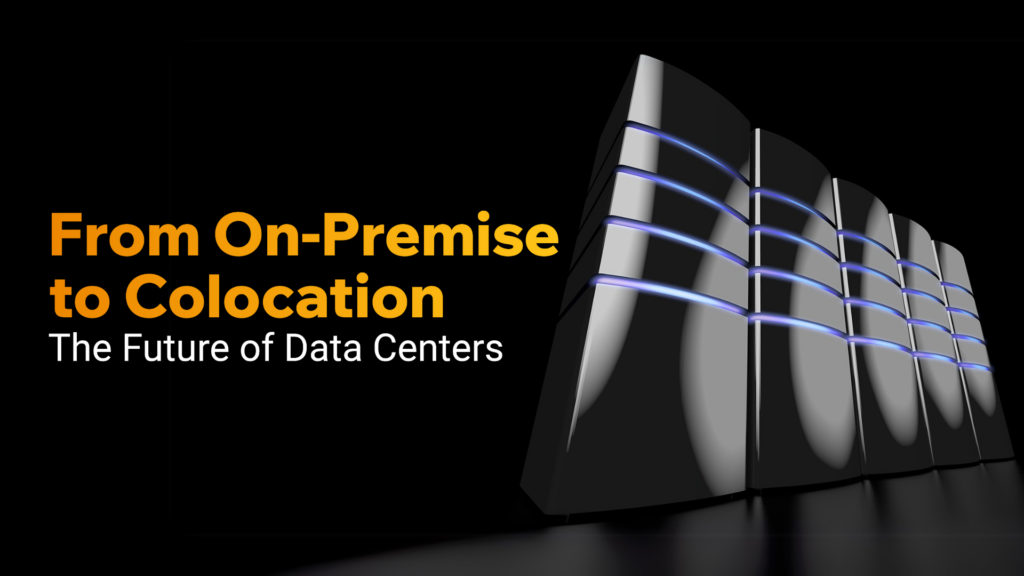
Modern organizations face increasing pressure to optimize their IT infrastructure for scalability, cost efficiency, and environmental impact. For decades, on-premise data centers were the standard for storing and managing data. However, the rise of colocation services has sparked a significant shift, reshaping the future of data centers. This transition enables businesses to focus on core competencies while benefiting from shared resources, cutting-edge technology, and improved resilience.
On-Premise Data Centers: An Overview
What Are On-Premise Data Centers?
On-premise data centers are physical facilities where organizations host and manage their IT infrastructure. These setups are entirely owned and controlled by the company, offering unmatched customization and autonomy. From running critical applications to securing sensitive data, on-premise solutions were historically the go-to choice for enterprises.
Benefits of On-Premise Solutions
Businesses often prefer on-premise setups for their ability to:
- Control Infrastructure: Full access to hardware and software configurations.
- Customization: Tailored solutions to meet unique operational needs.
- Data Sovereignty: Keeping sensitive information within internal networks.
Challenges in Managing On-Premise Infrastructure
Despite their advantages, on-premise data centers come with significant challenges:
- High upfront and operational costs.
- Limited scalability during peak demands.
- Maintenance of aging hardware and software.
Colocation Data Centers: A Modern Alternative
Understanding Colocation Services
Colocation involves renting space in a third-party data center to host your servers and equipment. These facilities provide state-of-the-art infrastructure, power, cooling, and connectivity, enabling businesses to offload operational responsibilities.
Benefits of Colocation Data Centers
Colocation offers several compelling advantages:
- Cost Savings: Eliminating the need to build and maintain on-site facilities.
- 增强安全性: Advanced surveillance, fire suppression, and redundant systems.
- 可扩展性: Seamlessly add or reduce capacity based on demand.
The Role of Colocation in Business Agility
In a fast-paced world, colocation enables businesses to adapt quickly to market changes without overextending budgets or resources. By leveraging shared infrastructure, organizations gain access to the latest technology without long-term investments.
Key Drivers for Transition
Rising Costs of On-Premise Management
Maintaining an on-premise data center is increasingly expensive due to rising energy prices, hardware replacements, and skilled labor shortages. Colocation offers a cost-effective alternative with predictable pricing models.
Scalability and Flexibility Needs
Modern workloads require dynamic scaling capabilities. Colocation facilities are designed to accommodate sudden spikes in demand, ensuring consistent performance.
Security and Compliance Improvements
Colocation providers adhere to strict regulatory frameworks such as GDPR, HIPAA, and ISO standards, ensuring peace of mind for businesses handling sensitive data.
Comparative Analysis
| Feature | 内部部署 | Colocation |
|---|---|---|
| Cost | High upfront investment | Lower capital expenditure |
| 可扩展性 | Limited by physical space | Easily expandable |
| Maintenance | Handled in-house | Managed by service provider |
| Environmental Impact | Higher energy consumption | Green certifications available |
Emerging Trends in Colocation
Green Data Centers
Sustainability is a growing focus. Many colocation facilities now use renewable energy sources and advanced cooling systems to minimize carbon footprints.
Edge Computing in Colocation
With the rise of IoT, edge computing integrates seamlessly into colocation facilities, reducing latency and improving real-time data processing.
AI-Driven Infrastructure Management
Artificial intelligence enables predictive maintenance, optimizing resource utilization and reducing downtime in colocation environments.
The Future of Data Centers
The future lies in hybrid IT models where colocation, cloud, and on-premise solutions work in harmony. As technology evolves, businesses will increasingly embrace colocation for its ability to balance efficiency, innovation, and sustainability.



